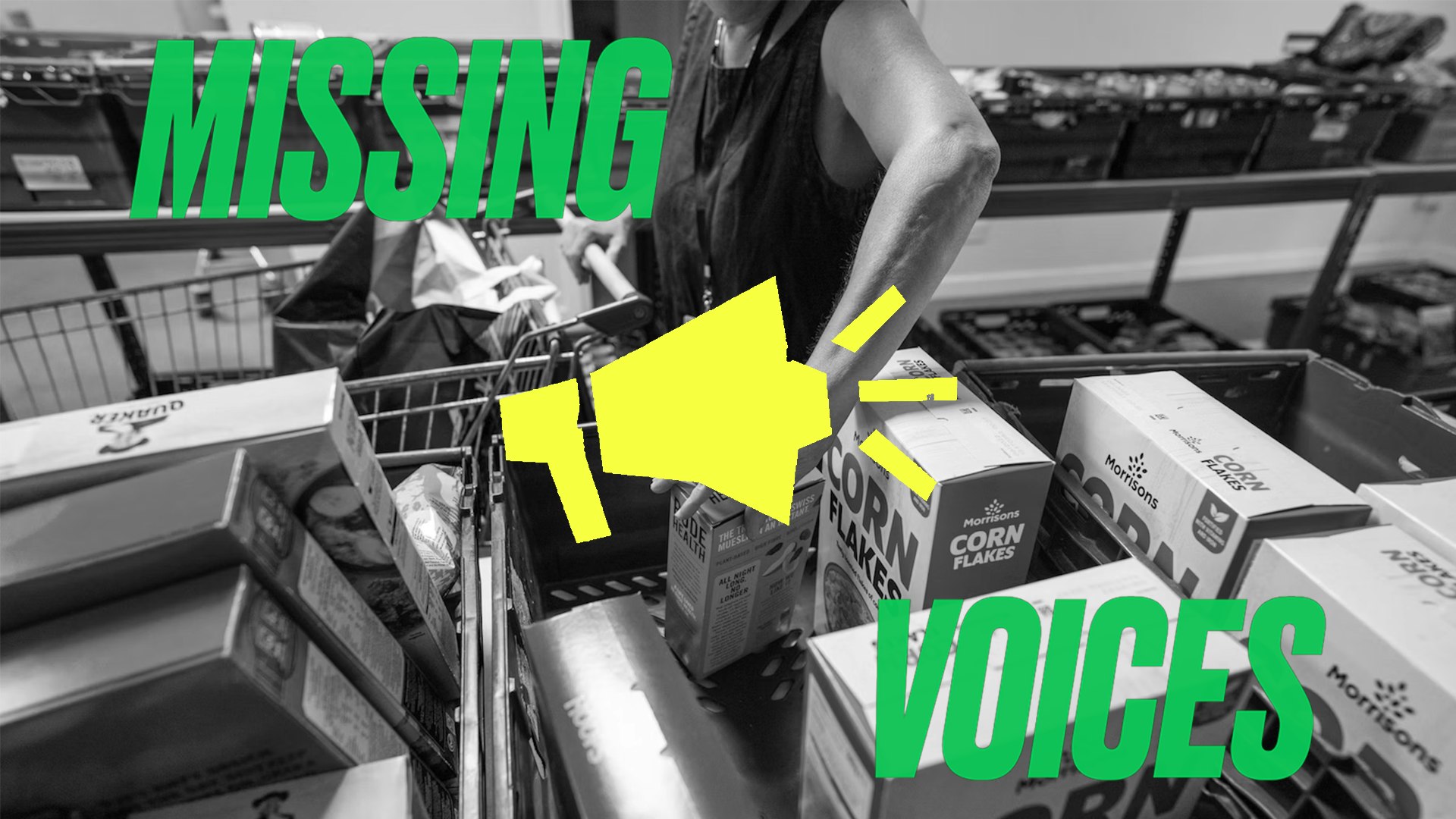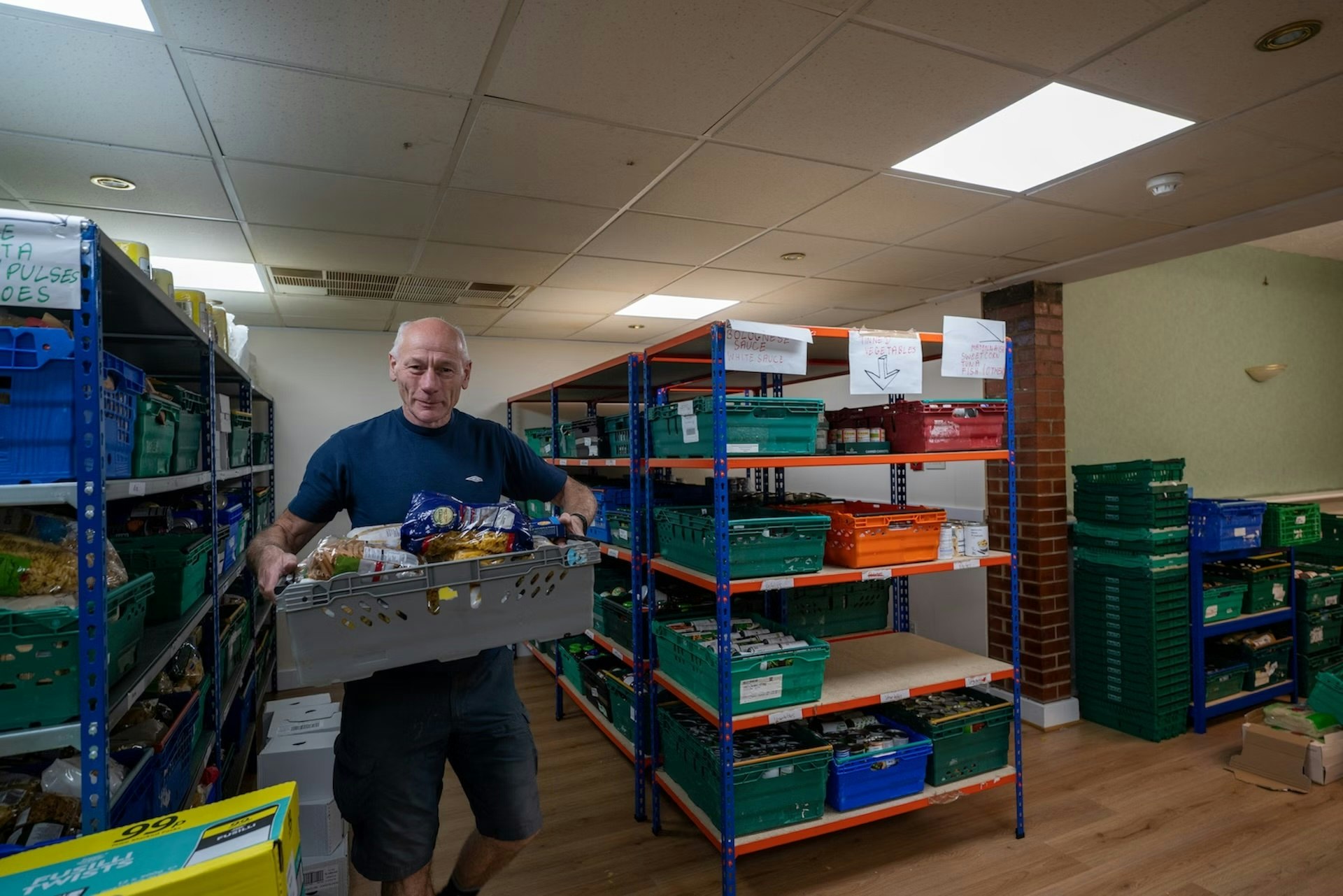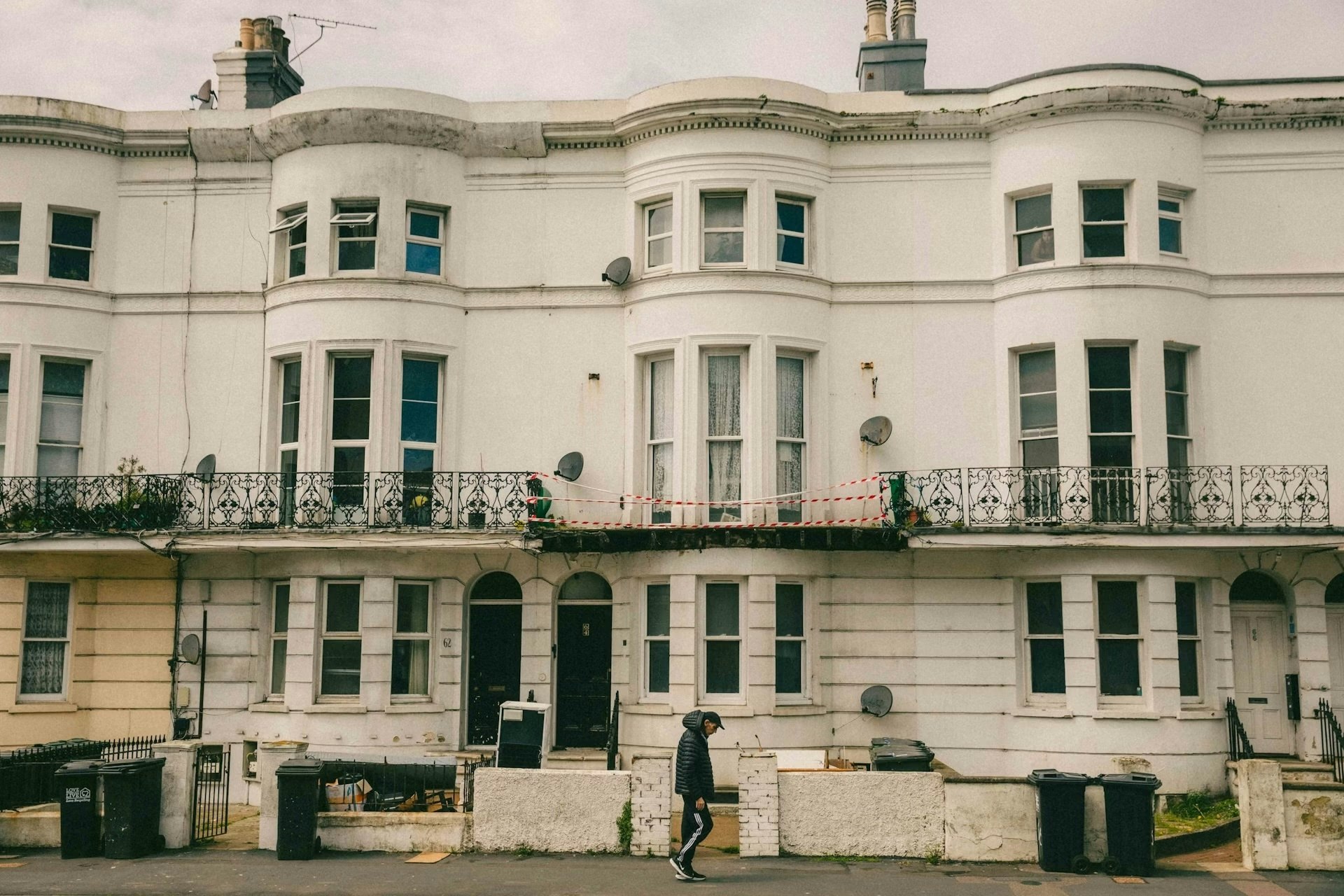Inside life at the centre of the cost of living crisis
- Text by Jamie Ginns
- Photography by Aiyush Pachnanda
- Illustrations by Han Nightingale

Missing Voices is a new series from Huck centring and platforming the voices of those ignored or left out of some of the biggest debates in politics.
My mission, one day, is to do myself out of a job. My name is Jamie Ginns and I’m the strategic lead at Greenwich Foodbank, in southeast London. It’s a role I’ve held since the middle of the pandemic in January 2021.
At that stage, Greenwich Foodbank was largely a volunteer-led organisation, with one warehouse manager in place. Since then, unfortunately, it’s needed to grow hugely. We've seen a 50 to 55 per cent increase in food bank need every single year since the pandemic. Nationally the statistics bear this out, with food banks in the Trussell Trust network now distributing 3.1 million parcels across the UK in the last year alone. At Greenwich, when we first started in 2012 we distributed 6,000 meals in our borough. In 2023, we provided nearly 170,000 meals in total.
When people come to Greenwich Foodbank they are usually at the end of their tether and feel like they have nowhere else to turn. Regardless of background, life experience or current situation, everyone who visits us is facing the same challenge. They are just not able to make ends meet. Their income is simply too low. Even people in stable employment are finding it harder than ever to ensure that the money in their pocket is enough to guarantee the essentials of life in 2024.
Many of the people who visit are struggling with the complexity of the Universal Credit system and find that social security support is not enough to cover the cost of living. People coming to us are also struggling with housing and carrying debt that is weighing them down even further and we aim to support them with those issues. While we are called a food bank, it is so much more than just food. We work with people to provide them with services and connections that will help to reduce the likelihood of them needing to turn to us again in the future.
How food banks are weathering the cost of living crisis
Read more

Eight months ago, a young man came to use one of our centres, which we call welcome centres, to receive his first food parcel. He was in his late twenties and was completely broken by his situation. He was carrying a huge amount of debt and, when receiving his parcel, he met with one of our partners who provide guidance on money matters at our centres. They discussed the challenges that he was facing and together created a robust plan that saw him pay off his debt over a period of a few months. He was chaperoned through the interviews he had at the Job Centre and they supported him to ensure he was accessing all the income he was eligible for. He was then offered a job opportunity within the youth sector of this borough which allowed him to make best use of his skillset as well.
He was someone who walked into one of our centres with no hope and is now at the forefront of making significant change within his community, and all that we needed to do was help him take that burden of debt off of his shoulders.
Across the borough, and indeed for many food banks in urban areas, the sheer number of people who visit us that are in temporary accommodation is shocking.
Recently we helped a family that was in such accommodation. There were three children, teenagers all bigger than me, and their mum living in one room. The mental health issues that we were seeing within the family were absolutely vast. When we looked into things, it turned out there was somewhere they could be placed but an administrative hold-up was stopping them being able to move into a new home. We stepped in and raised the issue with the local MP on their behalf and within two weeks o they were able to move into their new home.
Elsewhere we help many people who are on zero hours contracts. This was a particular issue during the pandemic. One such worker said to me that he could not understand how he was living in a country where he was working and yet he could not afford to buy his own food.
Who’s paying for the UK’s cost of living crisis?
Read more

There are hundreds of stories like this. They demonstrate a microcosm of the inadequacy of the support available for people on the lowest incomes. There are some very simple ingredients that when added to the mix can ensure that a person can genuinely get themselves back on their feet. But until we have a social security system that ensures everyone has the income they need to get by, we will remain stuck in this situation.
The truth of it is, people must be supported in a way that reflects the reality of their lives, especially if they're facing the higher costs and barriers that affect parents, carers and disabled people. The people who we support at Greenwich need the next government to prioritise building a future that doesn’t have a need for food banks and that guarantees that everyone has enough to cover the cost of the essentials.
It’s the stories of the people I have written about here, and those of the millions more people who are seeking help from food banks across the UK, that have fed into the Trussell Trust’s election manifesto and our ten priorities for the next government. If the next government were to take bold actions such as establishing an essential guarantee and building more social homes, or bringing in new workers’ rights legislation and fully funding local crisis support, then we may finally reach a point where food banks are no longer needed - and I can put myself out of a job.
Jamie is the Strategic lead at Greenwich Foodbank.
Read more Huck Election content here.
Enjoyed this article? Follow Huck on Instagram.
Support stories like this by becoming a member of Club Huck.
Latest on Huck

As Tbilisi’s famed nightclubs reawaken, a murky future awaits
Spaces Between the Beats — Since Georgia’s ruling party suspended plans for EU accession, protests have continued in the capital, with nightclubs shutting in solidarity. Victor Swezey reported on their New Year’s Eve reopening, finding a mix of anxiety, catharsis and defiance.
Written by: Victor Swezey

Los Angeles is burning: Rick Castro on fleeing his home once again
Braver New World — In 2020, the photographer fled the Bobcat Fire in San Bernardino to his East Hollywood home, sparking the inspiration for an unsettling photo series. Now, while preparing for its exhibition, he has had to leave once again, returning to the mountains.
Written by: Miss Rosen

Ghais Guevara: “Rap is a pinnacle of our culture”
What Made Me — In our new series, we ask artists and rebels about the forces and experiences that have shaped who they are. First up, Philadelphian rap experimentalist Ghais Guevara.
Written by: Ghais Guevara

Gaza Biennale comes to London in ICA protest
Art and action — The global project, which presents the work of over 60 Palestinian artists, will be on view outside the art institution in protest of an exhibition funded by Bloomberg Philanthropies.
Written by: Cyna Mirzai

Ragnar Axelsson’s thawing vision of Arctic life
At the Edge of the World — For over four decades, the Icelandic photographer has been journeying to the tip of the earth and documenting its communities. A new exhibition dives into his archive.
Written by: Cyna Mirzai

ATMs & lion dens: What happens to Christmas trees after the holiday season?
O Tannenbaum — Nikita Teryoshin’s new photobook explores the surreal places that the festive centrepieces find themselves in around Berlin, while winking to the absurdity of capitalism.
Written by: Isaac Muk







